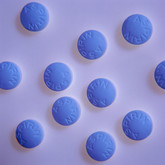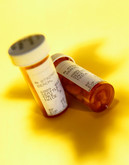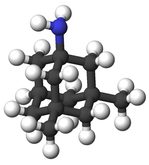Generics
FDA evaluation of impurities in generics
Although generics may differ from their reference product in terms of inactive ingredients, which includes impurities, such compounds in generics, especially genotoxic impurities, are an area of increasing concern for the pharmaceutical and regulatory world. Authors from the Office of Generic Drugs at the US Food and Drug Administration (FDA) highlight general toxicology concerns caused by such formulation differences between generic and originator drugs [1].
Teva launches enlarged prostate generic in the US
Generics giant Teva Pharmaceutical Industries (Teva) announced on 12 October 2015 the exclusive launch of generic dutasteride capsules (0.5 mg) in the US.
FDA evaluation of excipients in generics
Generics may differ from their reference product in terms of inactive ingredients, e.g. excipients, provided this does not affect the safety and efficacy of the product. Authors from the Office of Generic Drugs at the US Food and Drug Administration (FDA) highlight general toxicology concerns caused by such formulation differences between generic and originator drugs [1].
Brand-name drugmakers gain extra days of patent protection
Brand-name drugmakers have gained some extra time, be it only days, for protection of their originator drugs after a ruling by the Court of Justice of the European Union clarified the date that drug patents expire.
ADHD generic receives US FDA approval
US generics maker Impax Laboratories (Impax) announced on 21 October 2015 that the company had received approval for its attention deficit hyperactivity disorder (ADHD) guanfacine generic.
Effectiveness and cost-effectiveness of osteoporosis drugs
Comparison of treatments for osteoporosis has shown that pharmacological intervention for prevention of secondary fractures is cost-effective [1].
Sanofi launches authorized leflunomide generic in US
Sanofi US announced on 1 October 2015 that the company’s US generics division, Winthrop, had launched an authorized generic version of Arava (leflunomide) tablets.
Impact of antiretroviral generics on the Italian National Health Service
The cost of antiretroviral therapies (ART) for the treatment of human immunodeficiency virus (HIV), which is now considered a chronic disease [1], represents an increasing burden for healthcare services worldwide. In particular, the availability on the market of new antiretroviral drugs, often more effective and more expensive than those available, lead to the need to identify cost containing strategies to ensure the economic sustainability of the healthcare service and to provide effective treatments to patients. Over the next few years, several patents for antiretroviral drugs will expire, giving the possibility for generics to enter the market. The availability of new generics on the market, may lead to a lowering of ART costs, and therefore to the affordability to provide the aforementioned new and innovative drugs.
FTC says formula tweaking may be anticompetitive
The US Federal Trade Commission (FTC) has come down on the side of generics makers in a case about formula ‘tweaking’ by brand-name drugmakers.
Allergan makes deal with Amneal over its Namenda XR generic
Allergan has gained some breathing space for the extended-release version of its blockbuster Alzheimer’s disease treatment Namenda XR (memantine XR) after making a deal to delay generics entry for more than four years.












